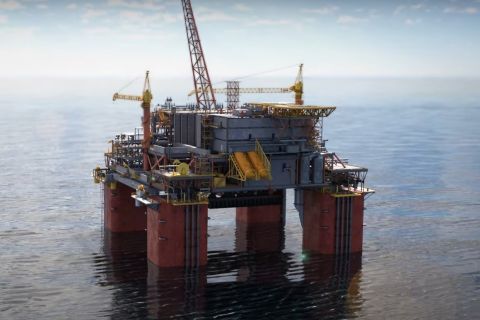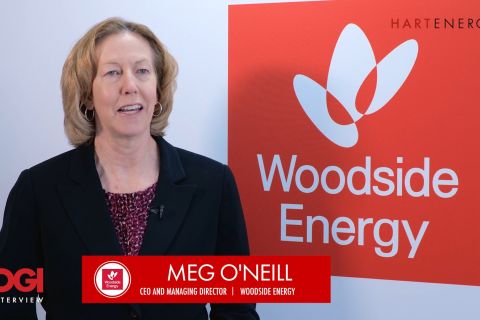A regulatory hearing to determine whether Dakota Access LLC can nearly double the flow of its oil pipeline through North Dakota began on Wednesday in the U.S. state, reigniting a fight with the nearby Standing Rock Sioux Tribe.
North Dakota Public Service Commission will decide at a later date whether owner Dakota Access LLC, controlled by Texas-based Energy Transfer LP, can build a pump station as part of an upgrade to boost pipeline capacity from 570,000 barrels per day (bbl/d) to 1.1 million bbl/d.
The industry sees the extra capacity as critical to handling expanding crude output from the Bakken shale play. But the Standing Rock Sioux, who live nearby, fear that spills could foul their drinking water and a sacred lake.
“The DAPL (Dakota Access Pipeline) capacity expansion will increase both the likelihood and the severity of spill incidents, and Dakota Access has failed to provide the commission with critical information necessary to properly evaluate the magnitude of those increased risks,” the tribe wrote in a Nov. 8 brief to the commission.
Standing Rock, which opposed the original construction of two-year-old DAPL, said greater velocity along the pipeline would increase the risk of spills.
The tribe was expected to address the commission directly on Nov. 13 at the hearing in Linton, N.D.
DAPL is a 1,172-mile underground pipeline carrying light oil from North Dakota through South Dakota and Iowa to an Illinois oil terminal.
A shale revolution has helped the United States become the world’s biggest crude oil producer, ahead of Saudi Arabia and Russia.
The North Dakota hearing follows an unrelated spill last month in the state of 9,000 barrels of oil from TC Energy Corp.’s Keystone pipeline.
Dakota Access LLC, in a June written brief to the commission, said alternatively moving additional oil by truck is more dangerous than expanding the pipeline, and rail shipments are more costly.
Expanding the pipeline would allow Bakken producers to operate more economically and generate greater tax revenue for the state, said Ron Ness, president of the North Dakota Petroleum Council, in a letter to the commission this week. Bakken production is expected to increase by up to 450,000 bbl/d in the next five years from 1.45 million bbl/d in August 2019, he said.
Construction would take eight to 10 months, starting in spring 2020, Energy Transfer’s vice president of engineering, Chuck Frey, told the commission.
Recommended Reading
Deepwater Roundup 2024: Offshore Australasia, Surrounding Areas
2024-04-09 - Projects in Australia and Asia are progressing in part two of Hart Energy's 2024 Deepwater Roundup. Deepwater projects in Vietnam and Australia look to yield high reserves, while a project offshore Malaysia looks to will be developed by an solar panel powered FPSO.
E&P Highlights: April 22, 2024
2024-04-22 - Here’s a roundup of the latest E&P headlines, including a standardization MoU and new contract awards.
The OGInterview: How do Woodside's Growth Projects Fit into its Portfolio?
2024-04-01 - Woodside Energy CEO Meg O'Neill discusses the company's current growth projects across the globe and the impact they will have on the company's future with Hart Energy's Pietro Pitts.
US Drillers Cut Oil, Gas Rigs for Fourth Week in a Row-Baker Hughes
2024-04-12 - The oil and gas rig count, an early indicator of future output, fell by three to 617 in the week to April 12, the lowest since November.
E&P Highlights: April 1, 2024
2024-04-01 - Here’s a roundup of the latest E&P headlines, including new contract awards.




